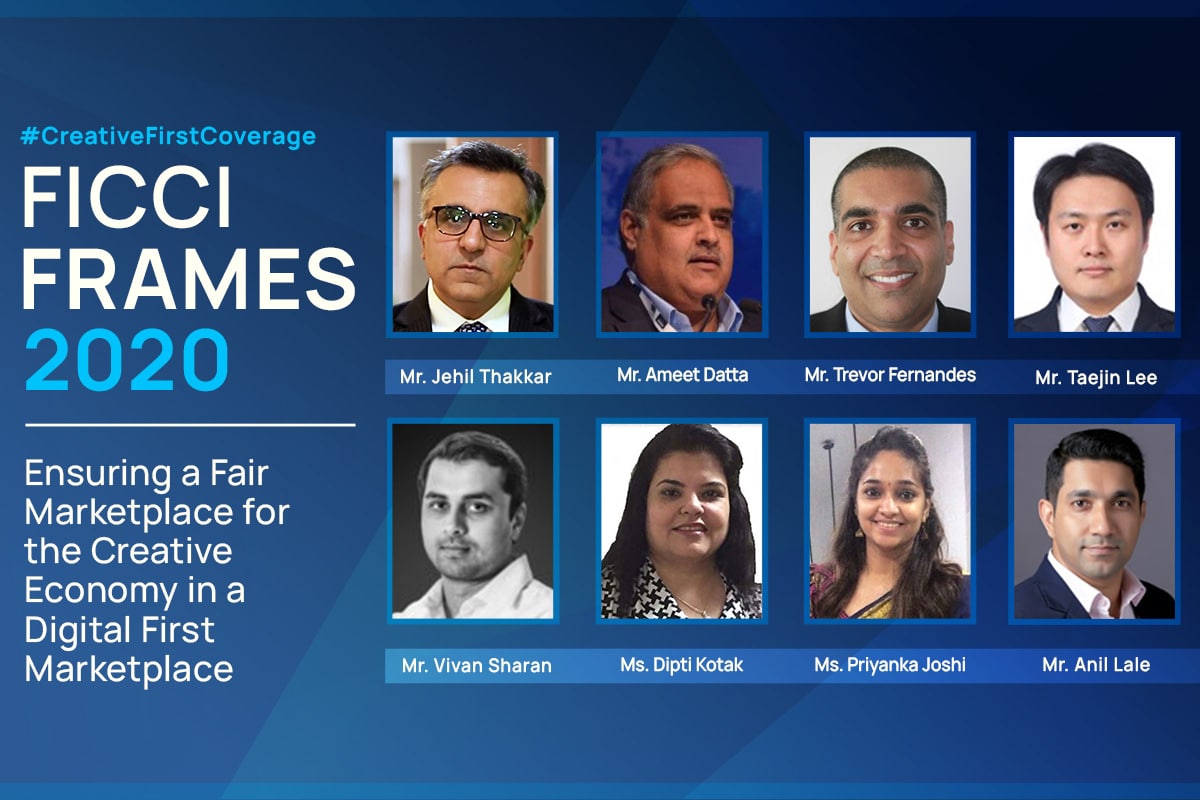
“A vibrant content market benefits the national economy. The investment that goes into producing TV shows & movies helps drive jobs, wages & trades”
-Trevor Fernandes, VP Govt Affairs – APAC, Motion Picture Association
The Protection of intellectual property (IP) is essential for the creative economy, as creators and producers depend on effective monetization for revenue. It assumes a central role as exclusivity of content is the unique selling point on any platform. In this context, the session on “Ensuring a Fair Marketplace for the Creative Economy in a Digital First Marketplace, moderated by Vivan Sharan, Partner, Koan Advisory looked at the creative economy’s challenges and how to solve them. The session compared developments in countries like the United States and South Korea to gauge the standard of IP protection in India.
IP Priorities and Approaches:
Jehil Thakkar, Partner and Leader, Media and Entertainment, Deloitte kicked off the session by launching a new report ‘Economic impact of the film, television, and online video services industry in India’. The report recommends sustaining the Ease of Doing Business push in the country via incentives, subsidies and strong enforcement measures. Mr. Fernandes appreciated the government’s initiatives to accede to the WCT and WPPT by the World Intellectual Property Organisation and the proposed amendment to the Cinematograph Act. He added that the government should align domestic law with international principles, strengthen access to IPR protection and penalise infringement.
Deepti Kotak, Chief Legal Officer, Media Businesses, Reliance Industries Limited said that…
she is excited about new technologies such as geo-blocking, watermarking and fingerprinting, which protects IP.
Anil Lale, General Counsel, Viacom18 Media Private Limited distinguished between regulation on legacy media vis-a-vis digital media. He said that while digital platforms arrive at pricing based on market principles, overregulation in legacy broadcasting has stifled the freedom of commercial negotiation. Lale added that as a consequence, digital platforms are surging while niche content on television is dying a slow death.
Ameet Datta, Partner, Saikrishna & Associates clarified the difference between the legislature’s and the judiciary’s roles in formulating IP policy.
He said that the courts interpret laws and Parliament’s objective should be to keep them broad enough and, at the same time, provide definitional clarity.
Priyanka Joshi, IP attorney with the Indian Music Industry said that the Copyright Amendment in 2012 led to more concerns than solutions. Taejin Lee, Regional Director for the Philippines at the Korea Copyright Protection Agency said that even in South Korea collaboration between stakeholders and government is prioritised.
The Way Forward:
Mr. Fernandes’ view is that the next challenge to effective IP protection will be to find a balance between privacy on platforms with end-to-end encryption and enabling content creators to obtain fair value for content. Mr. Lale reiterated the need to align with the global regime on IP enforcement as well as the need to tackle piracy effectively. Mr. Datta said that Indian courts have been creative in finding solutions to tackle piracy, referring to the recent order by the Delhi High Court on IP infringement. The Court passed a dynamic injunction allowing content owners to approach the Registrar of the High Court to block different URLs of the same pirate. Ms. Joshi said that it is imperative to foster amicable relations between stakeholders in the sector for a free-flowing licensing and royalties regime. In South Korea, the KCPA is looking to draft a legislation similar to the Music Modernization Act in the USA, Mr. Lee said.
Key Takeaways